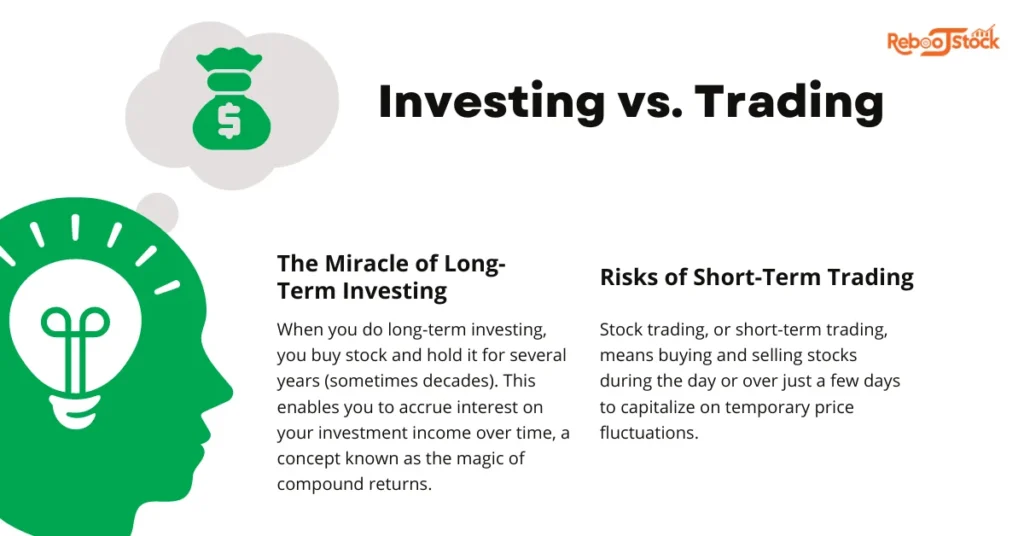Stock Market Basics for Beginners: How to Start Investing in Stocks
Stock markets can be daunting for someone new to the world of investing; nonetheless, they are one of the best ways to grow wealth over time. In this article, we will break down the stock market for you — everything from how to succeed when investing in stocks and what it entails as a beginner investor. After reading through this post, you will be equipped with enough information and confidence to start investing — while making decisions that align with your financial objectives.
What is the Stock Market?

What is the Stock Market?
The stock market is a compilation of markets and exchanges at which the selling, buying, and issuance trades associated with stocks (shares to get an American organization ) or even every additional security occurs. When companies trade their stocks on stock exchanges — NYSE or Nasdaq, for example – investors can purchase and sell them.
How does the Stock Market Function?
The stock market is a network of exchanges where stocks are bought and sold. If you buy stock, you own a small fraction of the company. The stock price reflects market activity, such as company earnings, economic conditions, investor relations, etc. It also works on a demand-and-supply mechanism. Exchange-traded securities and online brokerage platforms are available to help investors make trades directly on an organized stock market like the NSE.
Why Should Beginners Invest in Stocks?
Investing in stock markets is one of the best ways to build wealth and reach your financial goals. The Benefits & Risks Of Investing In Stocks For Beginners
Stock Investing Benefits
One of the main advantages of buying stocks (or shares) is that they can offer potentially high returns in a relatively short space of time. The stock market has been known to outperform other investment methods (like bonds or savings accounts) with some regularity, so naturally, many long-term investors choose the stock market. Moreover, investing in stocks means you own a stake in an entity that will prosper and succeed.
Risk of Stock Market Investment
Stocks can return much higher, but they are also more risky. Stock prices are very volatile, and you can lose a lot of money (in the short term). Understanding the risks and forming a sound investment strategy will be crucial for new investors.
Getting Started With Investing in the Stock Market
Getting into the stock market is hard, but breaking it down as I did here will make that journey more manageable.

Setting Investment Goals
But before you begin investing, clearly spell out your financial goals. Or are you saving for retirement, buying a home, or sending your offspring to university? This will depend on the following factors of what you can or cannot do in life and how much: Your goals … now, long-term vs short term; Strategy -whether investing for growth or income); Risk profile/aptitude (can be a high aggressive risk taker to a low-risk taker)Time Horizon-Yrs. Having clear goals will allow you to make the right decision and remain consistent on your path.
Choosing an Online Brokerage
AT A GLANCE: The right online brokerage — and not even necessarily the most expensive one — can make a big difference in your investing. Find a low-cost platform, easy-to-use interface, and access to a wide array of stocks and investment possibilities. E*TRADE Robinhood Charles Schwab Best online brokerages for buying index funds. They let you trade with stocks easily and provide tools to guide you into better understanding the market.
Stock Portfolio Construction
Principle of Diversification (How to Spread Risk in Investing) When you invest your savings in various shares, industries, and asset classes, not all of the money will suffer significant losses. For example, a diversified portfolio might have some large-cap and small-cap stocks in it (US equities), international equity exposure, and bonds. Buy and hold investing in this way will shelter your investments somewhat from market volatility and benefit you from appreciating stock prices.
The Basics of Stock Trading in the Market
Before you commence with your investments, it’s crucial to comprehend the nuances of how the stock market operates and what forces impact prices.

What Influences Stock Prices?
Many factors can affect a stock’s price, such as company earnings or negative events around the world. Good news, such as an earnings report better than what investors had expected or the possibility of new economic growth centers, may lift stock prices, while bad news (e.g., a global recession) can take a bite out.
What Are Bull and Bear Markets?
The “bull market” and the “bear market” essentially establish the trend in which stock prices move over time. In a bull market, stocks soar, and investors feel more optimistic; in a bear market, prices plunge, and pessimism prevails. By seeing this kind of market cycle, you know how to make investment decisions.
How to Buy and Sell Stocks
Trading stocks is the simple activity of investing, and this is what you are taught as trading. To purchase stock, you’ll need to create an account with an online brokerage, transfer money into your new account, and decide which stocks to buy. If you are selling stocks, they can either be sold at market price or a limit sell order, i.e., the specific amount you want to let go of in exchange for cash. Remember to track your investments and pivot as necessary.
Investing vs. Trading: It’s the Long Game Stupid!
As an investor, one of the very first decisions you need to make is whether you will be a long-term investor or take short trades. Both have advantages and disadvantages.

The Miracle of Long-Term Investing
When you do long-term investing, you buy stock and hold it for several years (sometimes decades). This enables you to accrue interest on your investment income over time, a concept known as the magic of compound returns. Long-term investing is usually the way to go. It can be less risky than short-term trading, making it best suited for retirement or wealth-building goals.
Risks of Short-Term Trading
Stock trading, or short-term trading, means buying and selling stocks during the day or over just a few days to capitalize on temporary price fluctuations. Though this method can result in fast cash, it comes with increased risk (a higher likelihood of great loss). Short-term trading requires a good understanding of market trends and the skills to make quick decisions.
Key Takeaways
- Understand the Basics: Before you start investing, it’s essential to learn the basics of the stock market, including how it works and what factors influence stock prices.
- Set Clear Goals: Define your financial goals and develop a strategy that aligns with them. Whether you’re investing for retirement, a major purchase, or simply to grow your wealth, having clear goals will guide your decisions.
- Diversify Your Portfolio: Spread your investments across different stocks and asset classes to reduce risk and increase the potential for returns.
- Choose the Right Brokerage: Select an online brokerage that offers low fees, a user-friendly platform, and access to a wide range of investment options.
- Focus on Long-Term Growth: While short-term trading can be tempting, long-term investing is generally a safer and more effective strategy for building wealth.
- Monitor and Adjust: Keep an eye on your investments and be prepared to adjust your strategy as needed based on market conditions and your financial goals.
By following these guidelines, you’ll be well on your way to becoming a successful investor in the stock market. Whether you’re a beginner or a seasoned investor, understanding these principles will help you make informed decisions and achieve your financial goals.













1 thought on “ Basics of Stock Market: Easy Steps to Start Investing Today”